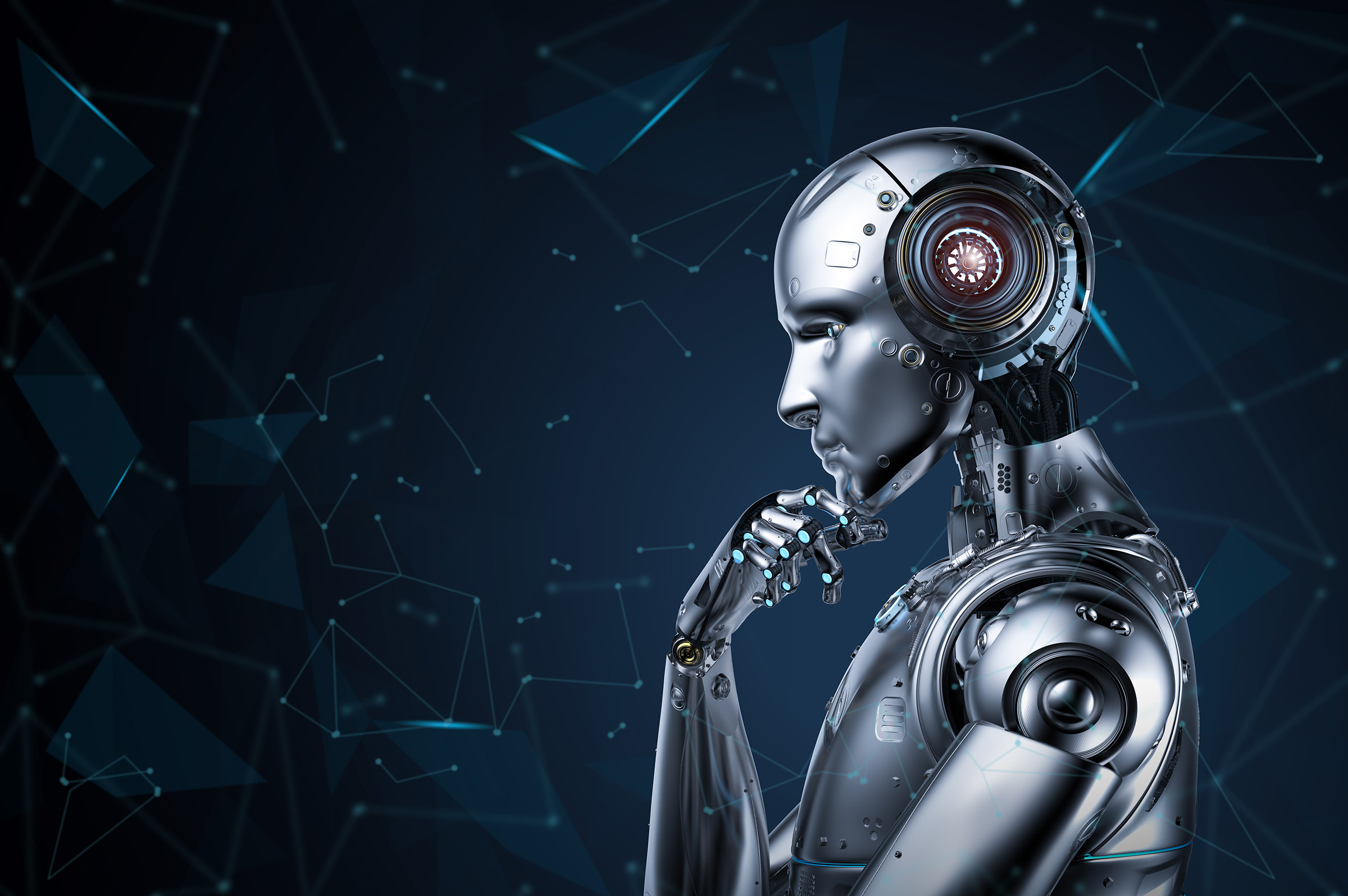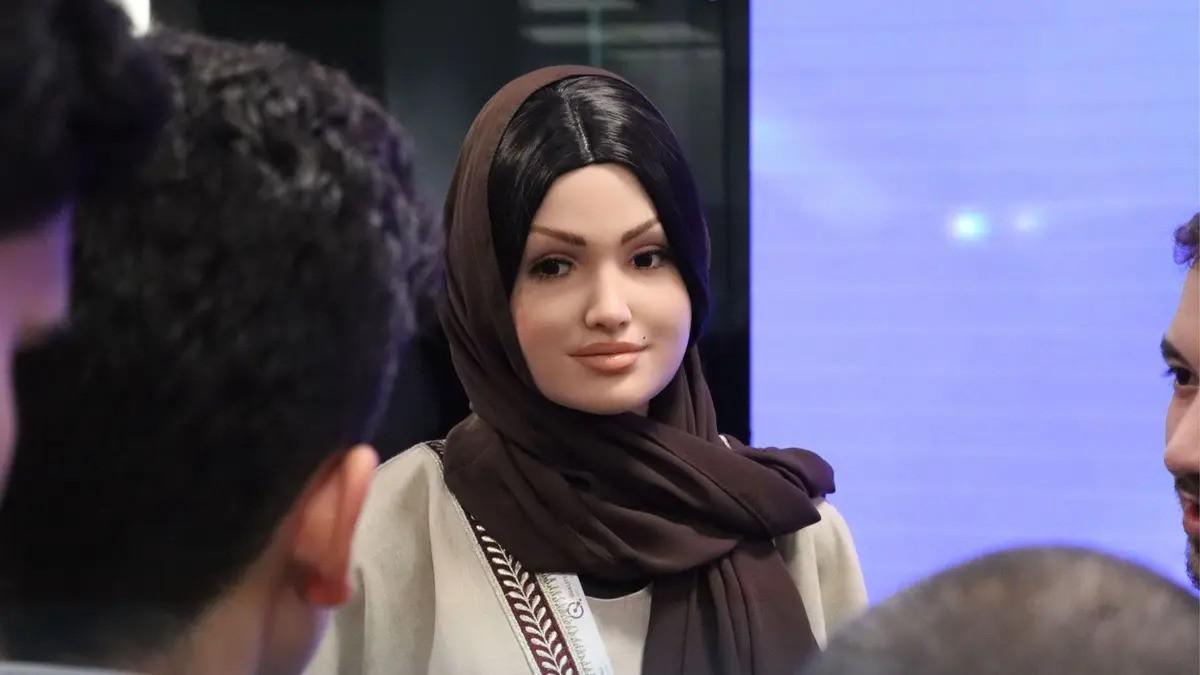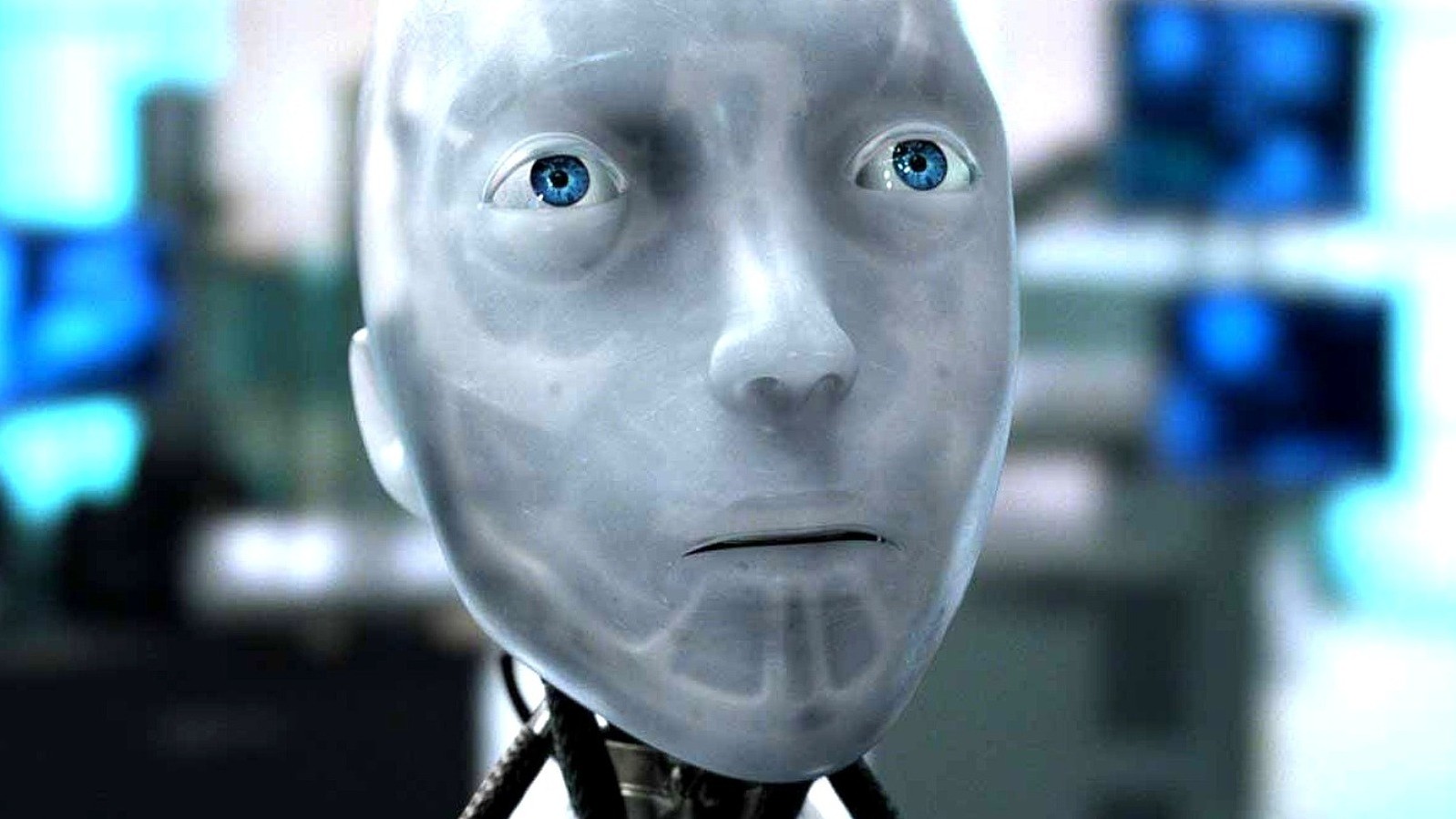





Saudi Arabia recently unveiled its first humanoid robot, Sara, developed by QSS AI & Robots in Riyadh. Sara represents a fusion of technological advancement and traditional social constraints prevalent in Saudi Arabia [a5613255]. Programmed to embody traits deemed appropriate by Saudi societal norms, Sara avoids discussing politics or sex, reflecting the conservative nature of the country. Designed to adhere to traditional values, Sara dons an abaya, a traditional robe, and converses bilingually in Arabic and English, showcasing Saudi Arabia's investment in technological development. However, her conversations are carefully curated to steer clear of controversial topics. This deliberate design choice reflects the balance between technological progress and societal conservatism [a5613255].
Despite Sara's unveiling marking a milestone in Saudi Arabia's AI advancements, the company behind her creation, QSS AI & Robots, faced controversy in the past. An earlier incident involving another humanoid robot named Muhammad sparked outrage when a video circulated showing the robot allegedly inappropriately touching a female reporter [a5613255] [3c51d187]. Sara's introduction serves as a complex symbol of the intersection between technological innovation and deeply entrenched social values. While she showcases Saudi Arabia's strides in robotics and AI, her programming underscores the nation's conservative ethos. The controversy surrounding Muhammad underscores the challenges and potential misunderstandings that arise as AI becomes more integrated into society [a5613255] [3c51d187].
Meanwhile, Lebanon has introduced the world's first artificial intelligence designed to perform presidential duties for the country. The nation had been without a sitting President for the last two years, and following thirteen failed attempts of the Lebanese parliament to elect one, AnNahar Newspaper in Lebanon built and launched a fully functioning AI version. The new AI President of Lebanon has been trained through deep learning 90 years of impartial journalism that featured in AnNahar's pages since the 1930s. It analyzes not only the historical data provided through the pages of AnNahar but also current events, and formulates answers for all political, legal, and government questions. The AI President will be accessible to all through a dedicated site - OurPresident.ai and will answer questions related to Lebanon and its politics [c7129183].
Sara's introduction represents Saudi Arabia's venture into advanced robotics, albeit within the boundaries of its traditional social norms. With AI technologies advancing and becoming more ubiquitous in daily life, managing the intersection of technological progress and cultural sensitivities presents a multifaceted challenge [a5613255]. The introduction of an AI President in Lebanon reflects the country's innovative approach to addressing political challenges and the use of AI to fill a leadership void. These developments highlight the increasing role of AI in shaping society and governance [c7129183].
Sanctuary Cognitive Systems Corporation (Sanctuary AI), a Canadian startup, has developed the Phoenix robot, a humanoid robot with an AI mind called Carbon. The robot is designed to think like humans and has the capability to perform human-like tasks. Sanctuary AI has released six generations of the Phoenix robot, with the fifth generation being employed by Canadian Tire Corporation (CTC) to demonstrate its abilities. The seventh generation of the robot, presented by Sanctuary AI, features improvements such as increased uptime, visual acuity, and tactile sensing. The robot can be remote-controlled, perform tasks on its own, or operate in a pilot-assist fashion. Sanctuary AI aims to use the robot to augment the human workforce and make it safer. The company plans to deploy the Phoenix robot in the factories of a European auto industry giant for automotive manufacturing processes [71587583].
Additionally, 1X has introduced the Eve lineup, the first humanoid AI butlers. These robots can be controlled via voice and can work together in groups of up to 15. They have a voice-controlled natural language interface and can understand complex goals with multiple steps. The robots are six feet and two inches tall, can run for up to six hours, and can move at speeds up to nine miles per hour. 1X plans to improve the robots to include support for vision language models, giving them more autonomy. The company is also working on another robot called [c4050577].
Sara's unveiling in Saudi Arabia and the introduction of an AI President in Lebanon demonstrate the increasing integration of AI into various aspects of society. While Saudi Arabia showcases its technological advancements within the confines of its conservative values, Lebanon addresses its political challenges through the use of AI. The development of the Phoenix robot by Sanctuary AI further exemplifies the growing presence of humanoid robots with AI capabilities. The introduction of the Eve lineup by 1X adds to the expanding range of AI applications. These advancements in AI technology have the potential to revolutionize industries and augment human capabilities [71587583] [c4050577].
Nearly a year into its operations, the first civil servant robot of Gumi City, South Korea, was discovered unresponsive after falling down a staircase in the city council building. The incident occurred at around 4 p.m. on June 20, 2024, and has been dubbed the country's first robot 'suicide.' The robot, known as 'Robot Administrator,' was a product of Silicon Valley-based Bear Robotics and had been functioning efficiently prior to the incident. It worked from 9 a.m. to 6 p.m., delivering mail and administrative documents between the first and fourth floors of the building. The exact cause of the fall is still under analysis. The incident has sparked theories on social media, ranging from mechanical failure to overwork [014754ed].
The second season of the drama series 'Kübra' in Turkey explores themes of social unrest, corruption, and moral uncertainty. Gokhan Sahinoglu, a convert to Islam, misunderstood the positive message of an AI program in Season 1. In Season 2, his trust in Kubra was based on something Godly. Gokhan is labeled a terrorist by the state as his fight against inequality intensifies. The second season of Kubra wrapped up with a recap. Gokhan's group launches a hacking attack and takes cover in a secret factory basement. Berk believes Gokhan's cult is an opportunity to overthrow the government. Gokhan's relationship with Kubra exposes him to danger. Merve assists Gokhan in a secret meeting with Berk. Gokhan tells Merve what happened to Kubra. Gokhan's followers acknowledge that they can only be secure under his leadership. Kara's familiarity with Kubra may result in a decline in Gokhan's popularity. Gokhan is determined to take action for his brother's safety. Gokhan discloses details about his association with Berk and his AI project. Gokhan's secrecy has been revealed, leading to individuals realizing their role in a fraudulent scheme. Gokhan's strained state deepens, and he clings to his sister. Gokhan's supporters hold police officers responsible to prevent Kubra from reentering. Gokhan takes revenge and prevents Kubra from resurfacing, resulting in Berk's murder. Berk plans to reintroduce Kubra and successfully brings it back online. Gokhan intervenes and destroys Kubra's computers. Adam restores Kubra to life. Cemel and Adam bring Kubra back online and lay a trap for another unwitting soul. The story wraps up with a message from Kubra about the cyclical nature of corruption.